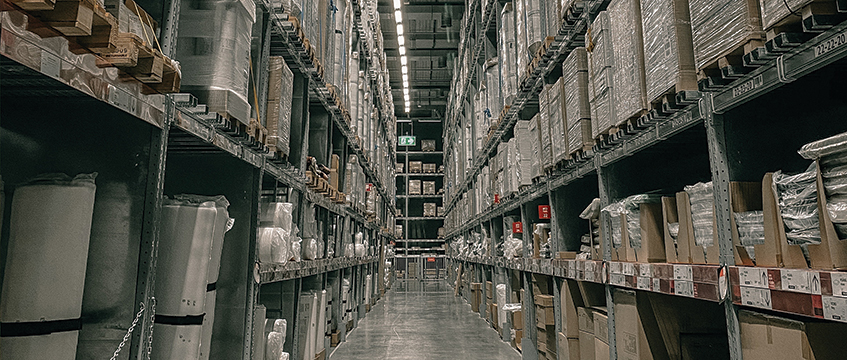As the real estate investment market freezes up, there are fears that even a market as hot as the industrial and logistics sector is rapidly cooling off.
After years of historic highs, investment into industrial is slowing down. The latest research from DTRE shows £1.7bn of single-let, big box facilities traded in the second quarter of 2022, bringing the half-year total to £3.4bn. This was 5% below Q1 and down by 43% on the previous year.
Some £7bn of stock is understood to be available, both on and off the market. One senior executive, who did not wish to be named, predicted this will become harder to shift as the market cools.
Take-up for warehouses measuring more than 300,000 sq ft has fallen to 20.1m sq ft for H1, said DTRE, from just over 23.6m sq ft during the same period last year. The report said pricing has softened over the past two months in response to the increasing cost of debt.
While rising interest rates are said to be deterring US buyers from acquisitions, it could herald greater opportunities for domestic buyers. Kevin Mofid, head of logistics and industrial research at Savills, is among the industry figures predicting that more domestic equity investors will return to the market. “The occupational story remains strong,” said Mofid.
However, it is thought that those investors will likely hold off while yields continue to show signs of widening. Prime yields for logistics and multi-lets moved out by 25bps to 3.5% last month, according to the latest findings from Savills, with further outward movement expected. Notably, GIC’s £425m acquisition of Northwood’s Project George portfolio, which has since completed, is thought to have exchanged during Q2 with a yield adjustment.
Despite the shift in yields and decline in volumes, industry players denied that a “bubble” is close to popping, with a supply shortage underpinning the scope for rental growth. Researchers at DTRE predict 4.6% annual rental growth in the UK’s big box market, to the end of 2024.
Mofid highlighted that all commercial sectors have seen investment volumes plunge by around 60% in Q2, compared with the previous quarter. Figures from Savills suggest that Q2 has been the slowest since 2020, when lockdown restrictions were in place – and there are further rises in base rates on the horizon.
“The issue is mainly a financial one as geared investors get to grips with higher costs of debt, so it’s not really just the logistics sector that is being impacted,” said Mofid. He added that speculative development is expected to trend downwards against a backdrop of mounting inflation and supply chain issues, which will keep vacancy low and, in turn, push rents higher.
Although macro turbulence is expected to impact the market, it is predicted to withstand it better than other sectors.
“While the wider UK economy stumbles, the industrial market is expected to weather the storm better than others,” said researchers at DTRE.
“[It] will not be immune to turbulence over the coming months, but while vacancy rates remain so low, we continue to predict further strong rental growth.”
To send feedback, e-mail pui-guan.man@eg.co.uk or tweet @PuiGuanM or @EGPropertyNews











